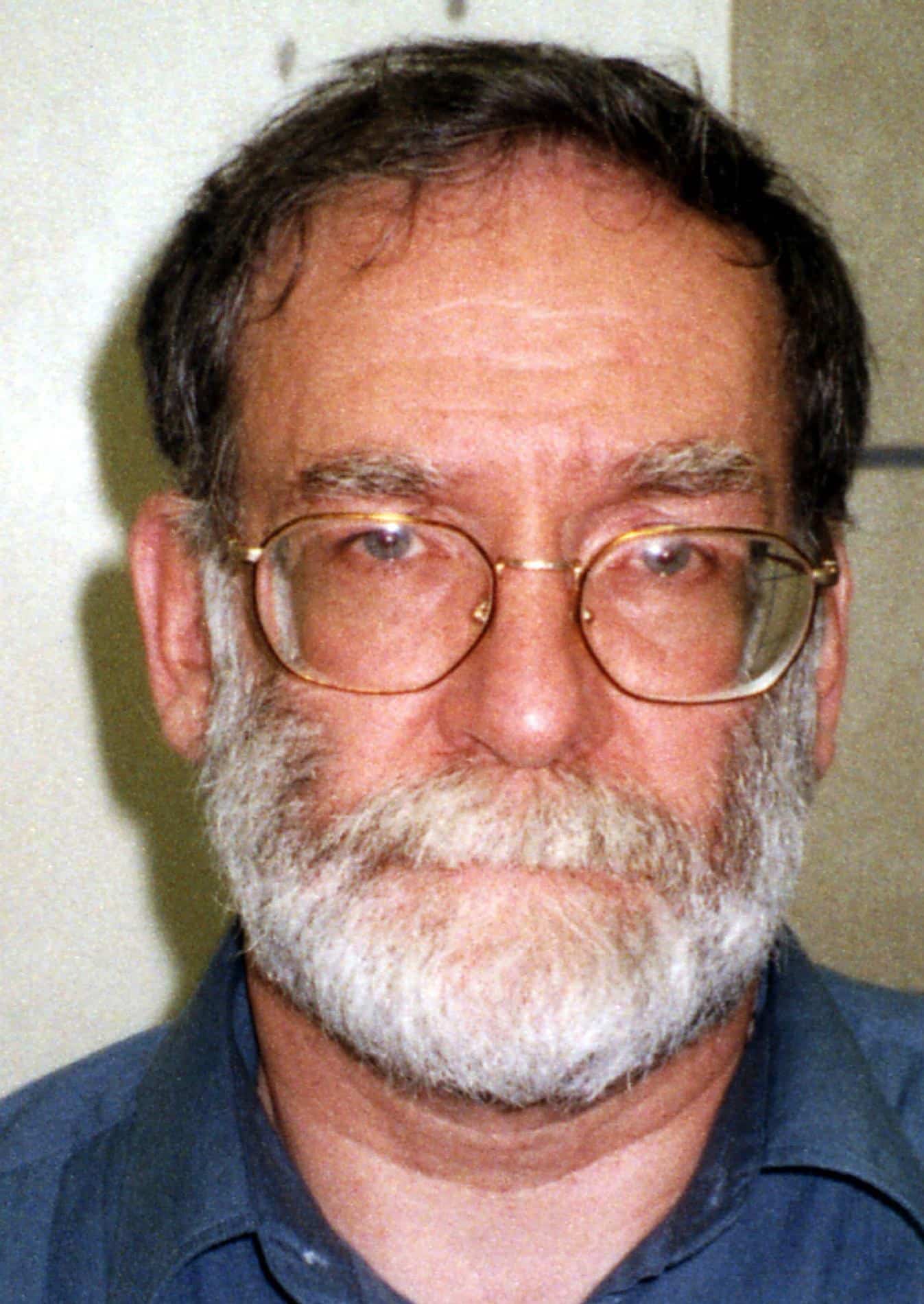Back in 1996, when the police investigated real crimes instead of spending 60,000 hours a year scrolling X for “non-crime hate incidents”, Noel Gallagher bragged to <em>Melody Maker</em> about how he and other Oasis band members used to burgle houses and steal cars before they became famous.
Unimpressed, Det. Chief Supt. David James of Greater Manchester CID immediately promised that “the police will endeavour to validate the truth”, leaving Oasis’s record company scrambling to explain that Gallagher’s comments “were tongue in cheek”. Police inquiries came to nothing, but at least the law-abiding families of Manchester rested assured that Gallagher’s indiscretion had been taken seriously and that not even a trendy musician is above the law.
One would hope that Gloucestershire Constabulary will take a similar approach to Dr Simon Opher, the Labour MP for Stroud and a GP for 30 years, who revealed in the assisted suicide debate last Friday how he had talked to some of his cancer patients about increasing morphine dosage to lethal levels with the purpose of ending their lives.
<a href="https://hansard.parliament.uk/commons/2024-11-29/debates/796D6D96-3FCB-4B39-BD89-67B2B61086E6/TerminallyIllAdults(EndOfLife)Bill"><mark style="background-color:rgba(0, 0, 0, 0)" class="has-inline-color has-vivid-cyan-blue-color">Dr Opher said:</mark></a> “We have been discussing giving a double dose of morphine. I think that almost all doctors in terminal care have probably done this - doubled the dose of morphine knowing that it might curtail the patient’s life. That is a big fudge. It puts me in a very vulnerable position. We need to resolve that.”
Now, if I were a copper I’d put down my mobile phone for five minutes and ask myself what became of Dr Opher’s discussions. I’d be curious to know who these patients were and what happened to them. I might also be inclined to talk to the chief about bringing in Dr Opher to ask on what on what evidence could he inform Parliament that “almost all” palliative care doctors are deliberately overdosing their patients. Does he know something the rest of us don’t? If so, I’d want names. I’d also want to ask why the absence of an assisted suicide or euthanasia law was placing Dr Opher, by his own admission, in a “very vulnerable position”.
You see, a GP of 30 years must surely know that doubling doses of morphine would not kill a patient. It simply wouldn’t have worked. When Dr Harold Shipman used diamorphine to murder his patients he increased the dosage by 20 to 30 times and injected the bolus intravenously to increase the impact of the drug by up to a hundred times. Certainly, he understood enough opioid pharmacology to know that morphine has a large “therapeutic gap”, the distance between good and bad effects, and that unless used in extremely high doses, or with another contra-indicated drug, it is pretty useless at hastening death. That is why morphine does not feature in any lethal cocktails in assisted suicide regimes anywhere in the world. For Dr Opher to have acted on his patients’ requests to hasten their exit with morphine, he would have had to follow Shipman’s <em>modus operandi</em> and that might make him a person of interest to the police. Yes, in quite a "vulnerable position".
I suspect, rather, that his words in the Commons were probably bluster, all part of a piece to browbeat and mislead Parliament into believing that kind-hearted doctors are unfairly exposed to prosecution in situations where they want to act in the best interests of patients by ending their suffering with a handful of pills and that the Terminally-Ill Adults (End of Life) Bill is the remedy for this mischief.
Let’s face it, Dr Opher is no neutral observer in this debate. He spent the weeks before the debate actively drilling up the support of other doctors in Parliament to back Kim Leadbeater’s Bill and trying to persuade the public of the merits of assisted suicide through the columns of papers like the <em><a href="https://www.express.co.uk/news/politics/1982153/assisted-dying-bill-simon-opher"><mark style="background-color:rgba(0, 0, 0, 0)" class="has-inline-color has-vivid-cyan-blue-color">Daily Express</mark></a></em>, which has taken up Dame Esther Rantzen’s campaign for a change in the law.
In his speech, he not only repeated misconceptions about morphine and palliative medicine but deployed the full weight of his professional authority to assuage well-founded fears held by many MPs, and disabled rights activist in particular, over the risk of even a modest assisted suicide Bill descending fast down a slippery slope to great and horrific abuses. All will be fine if "the legislation is carefully done", he told Parliament.
Grave concerns about the ability of two doctors to detect patient coercion before they signed off suicides were given similarly short shrift. Medics are “trained in trying to find out the reasons someone wants to end their life”, he went on to soothingly assure MPs. “I think it is judging doctors harshly to say that they will not spot coercion.”
It was the trite “trust me, I’m a doctor” routine at work again, back after the battering it took when Dr Shipman became Britain’s most prolific serial killer with the help of 176 cremation forms signed by second doctors hopeless at spotting even a murder spree. Sorry, old chum, but those days are over.
Yet perhaps Dr Opher inadvertently expressed what this assisted suicide Bill is really about and what it will actually do. Put bluntly, it will hand legal power to doctors to kill their patients with impunity. They can’t do that at present because laws against homicide prevent them. Nor can they assist in suicides unless the prohibitions in the 1961 Suicide Act are removed, as Kim Leadbeater’s Bill seeks to do.
A few years ago I wrote about doctors who kill in <a href="https://amzn.eu/d/8PnWp28"><mark style="background-color:rgba(0, 0, 0, 0)" class="has-inline-color has-vivid-cyan-blue-color"><em>The Beast of Bethulia Park</em> </mark></a>. One scene features a conversation in which Dr Reinhard Klein reflects on a mistake which has brought him unwelcome media exposure. His mistress consoles him by predicting that when the law changes, as they are certain it will, getting rid of “nuisance” patients will “be a complete doddle”. Although the book is fiction, that phrase was borrowed from the mouth of a real-life doctor on the day we met the son of a victim of Dr Shipman.
The Leadbeater’s Bill is designed to make getting rid of nuisance patients “a complete doddle”. It is a charter for those who would play God in the spirit of Dr Shipman, a man who, it is worth remembering, remarked with great moral aplomb to Pamela Turner that “the old are a drain on the health service” shortly before he murdered her mother, Edith Brady.
This is because it is calculated cynically and carefully to protect doctors who actively and deliberately assist in suicides to the point of even denying the coroner the right to investigate such deaths. Thomas Teague, the former Chief Coroner for England and Wales, <a href="https://www.telegraph.co.uk/opinion/2024/11/25/letters-assisted-dying-palliative-care-system-cannot-help/"><mark style="background-color:rgba(0, 0, 0, 0)" class="has-inline-color has-vivid-cyan-blue-color">wondered in a letter to the <em>Daily Telegraph</em> </mark></a>that “if the Bill becomes law, who will provide the necessary posthumous judicial scrutiny of these unnatural deaths?”
The answer is “no-one”. That’s surely why the clause excluding coroners has been included. A genuine safeguard would have been open justice, the mandatory involvement of the coroner under the watch of the free press, but genuine safeguards are not what this Bill contains.
Instead it offers only false promises. It is a sepulchre whited with safeguards so clearly ineffective that even supporters of assisted suicide admit they are unworkable. Take Lord Sumption, a former Supreme Court judge, who told <em>Times Radio</em>, for example, that the role envisioned for the judiciary, in the form of a High Court judge scrutinising each application for assisted suicide, was “illusory” and so badly drafted that “parts of it read like the protocol for an execution”.
The offer of judicial oversight was probably to get the Bill through the Second Reading where it faced the greatest danger of being halted. MPs who are old enough ought to remember that after the Bland judgment of 1993 High Court judges were asked to approve the small number of deaths by dehydration envisioned for vegetative patients. Yet within 15 years this practice had morphed into the Liverpool Care Pathway, the “national disgrace” denounced by Norman Lamb, the Care Services Minister, when in 2014 he announced its abolition.
Patients died on the LCP after they were sedated and dehydrated - and not because they were given double doses of morphine, as Dr Opher suggests is commonplace today. Perhaps he is right in stating that there may be malicious doctors who have ended the lives of patients in terminal care, but such medics would be foolish to pump their victims with ridiculously high levels of traceable opiates when there are easier, more effective and less perceptible ways to achieve their goals. Perhaps he was tacitly suggesting that, generally speaking, badly administered end-of-life care is already a form of euthanasia.
So what should we make of Dr Opher’s comments? More likely than not, he was simply one of a number of MPs who that day misled the Commons and the country with propaganda aimed solely at legalising a practice which will result in the wholesale demolition of medical ethics and the dangerous cheapening of the lives of elderly, disabled, sick and vulnerable people for generations to come.
If he had done this knowingly, he should have the decency to apologise to MPs - and they should throw out this murderous Bill when the next opportunity arises. It's not to be trusted.
<em>(Photo by Greater Manchester Police via Getty Images)</em>



